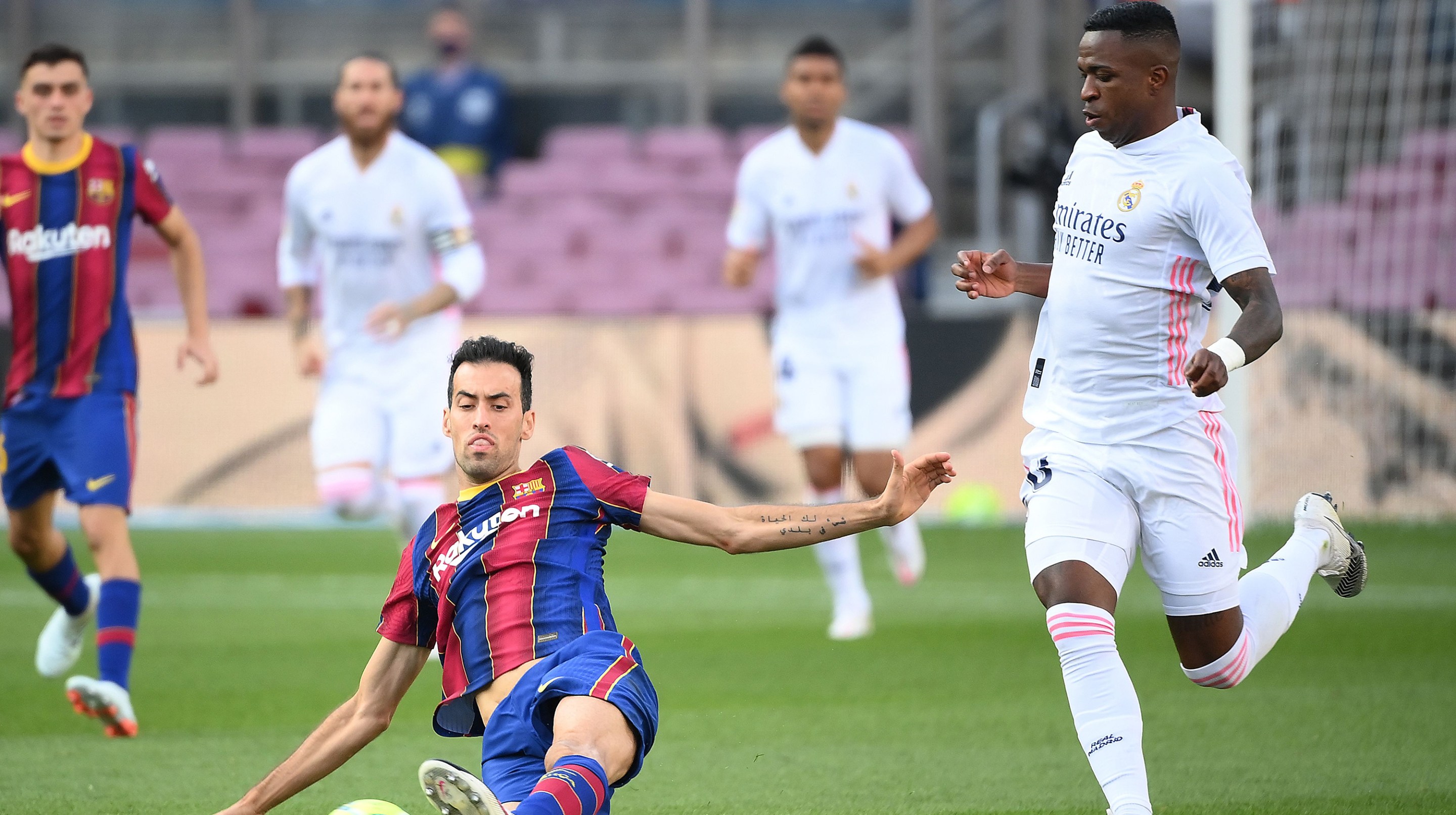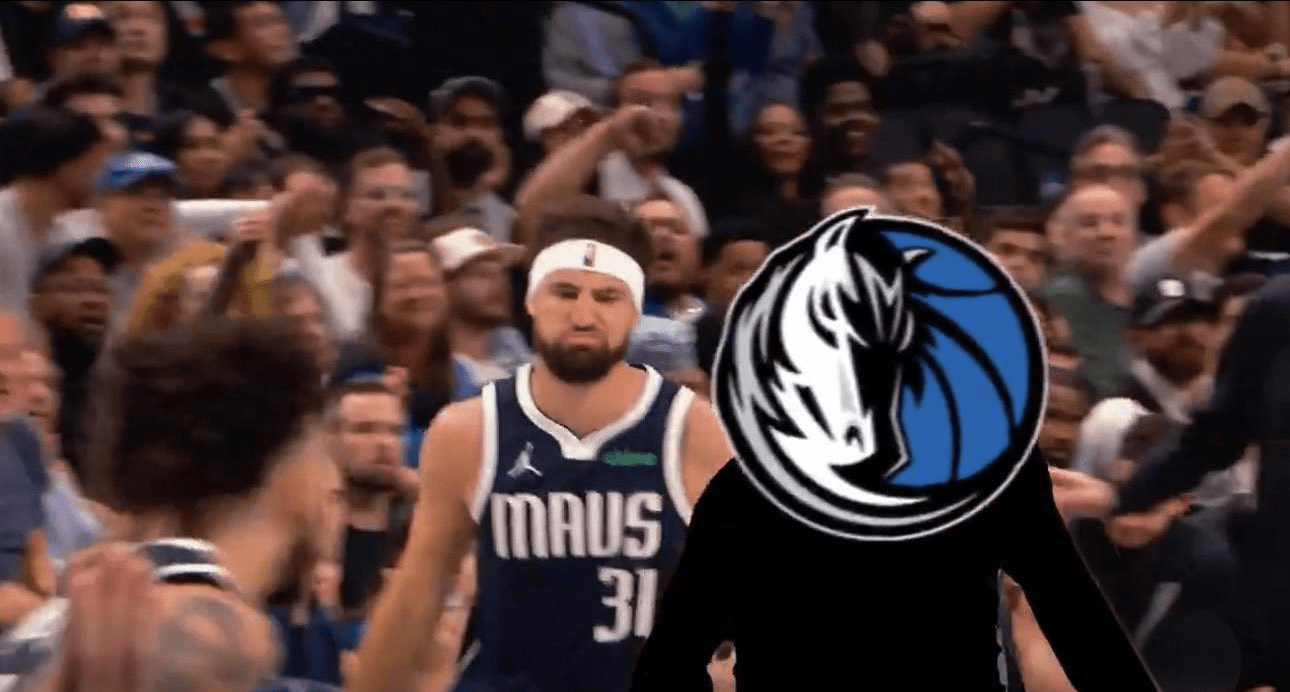There comes a time in every soccer player's career when it becomes clear that they can no longer perform at the level they have become accustomed to. Sometimes, it takes entire seasons to notice the steady decline; other times, it seems to happen all at once. For Barcelona's Sergio Busquets, that moment has been coming for awhile now, but it was crystallized during the lead-up to Real Madrid's opening goal of Saturday's El Clásico:
While you might be tempted to blame Gerard Piqué for losing Federico Valverde's run into the box, watch it again while paying attention to Busquets, who lets Valverde run right by him without so much as a move to chase him. Not that Busquets's effort would have mattered much, since at this stage of his career he never would have caught Valverde. Though he was never the quickest of players, Busquets's legs are even heavier now than before, and Madrid took advantage of that by running directly at him during his entire 81 minute stay on the pitch. Though Madrid's 3–1 win came off the back of a penalty that didn't involve Busquets and a late goal from Luka Modric after Busquets was subbed out, Madrid kept Barcelona on the back foot by constantly pressuring Barca's No. 5.
In new Barcelona coach Ronald Koeman's system, Busquets ostensibly has help in the double pivot, as Frenkie de Jong roams around next to him, but there's only so much the Dutchman can do. Maybe that would still be enough, if Busquets had retained his previous attributes, but the Spaniard's passing, once Barcelona's best safety valve for relieving opponent pressure, has similarly declined. At his best, Busquets's gift was how calmly he could evade pressure and fire off quick, accurate passes. Today, Busquets's dipped agility means he is no longer so elusive when pressed, and he no longer is quite as fast or as accurate with his passing, which makes him something of a liability in precisely the areas he used to thrive.
Busquets has always been a highly contextual player who needs a specific set of complementary pieces in the team that plays a certain way to perform at his best. This makes him somewhat unique; great players more often tend to be the creators of their team's context rather than subjects to it. At 32 years old, Busquets is neither young nor particularly old for a deep-lying midfielder, and it's perfectly possible for a team to create a context in which Busquets can once again play very well consistently. But this Barcelona has different needs, and players like Frenkie de Jong and Philippe Coutinho and Ansu Fati create a different context—more physical, vertical, mobile—than the one Busquets is especially designed for.
That doesn't mean Busquets should never play another match for Barça, but it does mean that a healthy, effective Barça is one in which Busquets's prominence is greatly reduced. It is probably just a matter of time before new signing Miralem Pjanic replaces Busquets next to de Jong, and Busquets transitions into a rotation, spot-starting role. It would signal the sad though natural end to one of Barcelona's best and most important players of the Lionel Messi era, but, to paraphrase a famous Vicente del Bosque quote, you used to be able to see the whole game by watching Busquets. Now, you can't even see where Busquets fits into the game, no matter how hard you try.





